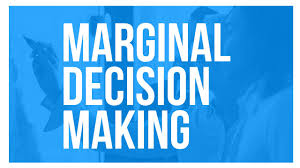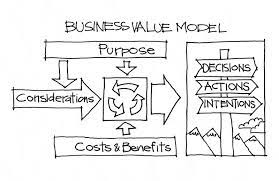Seven tips for making ethical decisions.
- Consider all stakeholders – think about how your decision will affect those involved, including yourself.
- Consider the long-term implications – look beyond immediate solutions and consider the long-term consequences of your decisions.
- Consult with experts – seek advice from knowledgeable people who can provide insight into ethical considerations that you may not have considered.
- Be honest and transparent – be open and honest in your communication to ensure that everyone is on the same page when it comes to understanding the ethical considerations of a decision.
- Seek out alternative perspectives – try to understand different points of view and consider them when making a decision.
- Follow relevant laws and regulations – make sure you are aware of any applicable laws or regulations related to the issue at hand, as these can help guide you in making an ethical decision.
- Reflect on your decision – take some time to reflect on your decisions after they’ve been made, so that you can learn from them for future situations
Consider all stakeholders – think about how your decision will affect those involved, including yourself.
Making ethical decisions can be difficult, especially when there are multiple stakeholders involved. It is important to consider all of the stakeholders when making a decision, and to think about how it will affect each one. This includes considering the impact that the decision will have on yourself as well as others.
When thinking about how your decision will affect each person or group involved, it is important to consider their individual circumstances and perspectives. For example, if you are making a decision that involves both customers and employees, you should think about how it will affect each of them differently. You should also consider any potential conflicts of interest or biases that may influence your decision-making process.
It is also important to remember that ethical decisions are not always easy or popular. There may be times when you have to make a difficult choice in order to do what is right for everyone involved. However, by considering all stakeholders and their individual perspectives, you can ensure that your decisions are both ethical and beneficial for all parties involved.
Consider the long-term implications – look beyond immediate solutions and consider the long-term consequences of your decisions.
Making ethical decisions can be difficult, but considering the long-term implications of your choices is an important part of the process. It’s easy to get caught up in the moment and focus on immediate solutions, but it’s important to look beyond that and consider how your decisions will affect you, others, and the environment in the long run.
This means taking into account how your decisions will impact not only yourself but also those around you. It means considering both the short-term and long-term consequences of your actions. For example, if you decide to take a loan from a bank, think about how it will affect you in a few years time – will you still be able to afford the repayments or will it put too much strain on your finances?
It’s also important to consider how your decisions might impact others. If you are making a decision that affects other people, ask yourself: What are their needs? How may this decision affect them? Is there anything I can do to minimize any potential negative impacts?
Finally, when making ethical decisions it’s important to consider the environmental implications of your choices. Think about how your decision might affect the planet – is there anything you can do to reduce any negative environmental impacts?
By considering all these factors when making ethical decisions, we can ensure that our choices are not only beneficial for ourselves but also for those around us and for our planet.
Consult with experts – seek advice from knowledgeable people who can provide insight into ethical considerations that you may not have considered.
Making ethical decisions can be difficult and overwhelming, but consulting with experts can help. Seeking advice from knowledgeable people who are familiar with the ethical considerations surrounding a particular decision can provide valuable insight that you may not have considered.
Experts in the field of ethics can provide guidance on how to make the most ethical decision possible. They can explain the potential consequences of different decisions, as well as help you weigh the pros and cons of each option. Additionally, they may be able to offer advice on how to navigate any legal or regulatory issues that could arise from a particular decision.
When consulting with experts, it is important to be open-minded and consider all points of view. Even if you don’t agree with their advice, it is important to listen and consider their opinion before making a final decision. Additionally, it is important to seek out multiple perspectives in order to get a better understanding of all the potential implications of your decision.
By consulting with experts and seeking out multiple perspectives on an ethical issue, you will be better equipped to make an informed and ethical decision that takes into account all relevant considerations.
Be honest and transparent – be open and honest in your communication to ensure that everyone is on the same page when it comes to understanding the ethical considerations of a decision.
In today’s world, it is essential to ensure that ethical considerations are taken into account when making decisions. Being honest and transparent in communication is an important part of this process. By being open and honest about the ethical considerations of a decision, everyone involved can be sure that they are on the same page and understand the implications of the decision.
Honesty and transparency in communication can help to build trust between individuals and organizations. When people know that their opinions are being taken seriously, they are more likely to be open to different perspectives. This increases the chances of making an informed decision that takes into account all relevant ethical considerations.
Furthermore, being honest and transparent in communication also helps to create a safe environment for individuals to express their opinions without fear of judgment or criticism. This allows for a constructive dialogue which can lead to better outcomes when making decisions related to ethical matters.
Overall, being honest and transparent in communication is an important part of making ethical decisions. By doing so, everyone involved can be sure that their opinions are heard and respected, leading to better outcomes for all parties involved.
Seek out alternative perspectives – try to understand different points of view and consider them when making a decision.
Making ethical decisions can be a difficult task. It is important to understand different perspectives and consider them when making a decision. Seeking out alternative perspectives is a great way to ensure that you are making the right decision.
It can be difficult to understand different points of view and consider them when making a decision, but it is essential in order to make an ethical decision. Taking the time to research and understand different perspectives can help you make an informed choice. For example, if you are considering a policy change, it may be beneficial to consider how it would affect various stakeholders in the organization or community.
By taking the time to research and consider different perspectives, you will be able to make an informed decision that takes into account the needs of all involved. Additionally, this will help ensure that your decision is fair and just for everyone involved.
Overall, seeking out alternative perspectives is an important part of ethical decision-making. Taking the time to research and understand different points of view can help you make an informed choice that takes into account everyone’s needs and interests.
Follow relevant laws and regulations – make sure you are aware of any applicable laws or regulations related to the issue at hand, as these can help guide you in making an ethical decision.
Making ethical decisions can be a difficult task, but it is essential to ensure that the decision you make is the right one. To ensure that your decision is ethical, one of the most important things to consider is relevant laws and regulations.
It is important to be aware of any applicable laws or regulations related to the issue at hand, as these can help guide you in making an ethical decision. Laws and regulations provide a framework for making decisions, and can help ensure that your decision does not violate any legal requirements. This can help protect you from potential repercussions for making an unethical decision.
In addition to providing guidance on how to make an ethical decision, familiarizing yourself with relevant laws and regulations can also provide insight into how other people have tackled similar issues in the past. This can give you a better understanding of what may have worked in similar situations, which can then inform your own decision-making process.
Ultimately, following relevant laws and regulations when making an ethical decision is essential for ensuring that your decision is both legally compliant and morally sound. Doing so will not only protect you from potential legal repercussions, but it will also help ensure that your decisions are based on sound reasoning and evidence-based research.
Reflect on your decision – take some time to reflect on your decisions after they’ve been made, so that you can learn from them for future situations
Making ethical decisions can be difficult, especially when the stakes are high. It is important to take the time to reflect on your decisions after they have been made in order to learn from them for future situations.
Reflecting on decisions allows you to consider any potential consequences of your actions and how they may have impacted others. It also gives you an opportunity to evaluate if the decision was the right one and if there were any other options that could have been taken. This can help you identify potential pitfalls and mistakes in the future, which can help you make better decisions in the long run.
Additionally, reflecting on your decisions can help you understand why you made them in the first place. This can be beneficial for understanding yourself better and understanding how different situations might affect your decision making process. Additionally, it can give you insight into how other people might react to similar situations and allow you to plan accordingly.
In conclusion, taking some time to reflect on your decisions after they’ve been made is an important part of ethical decision making. It allows you to consider potential consequences of your actions, evaluate whether or not the decision was correct, identify potential mistakes for future situations, and gain insight into yourself and others.




